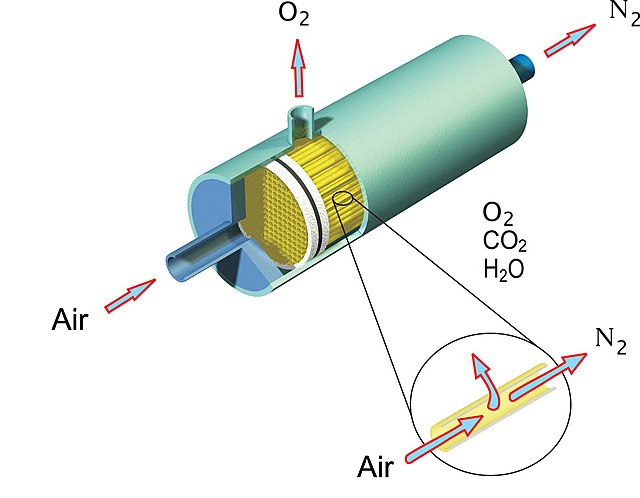Ultrafiltration (UF) is a variety of membrane filtration in which forces such as pressure or concentration gradients lead to a separation through a semipermeable membrane. Suspended solids and solutes of high molecular weight are retained in the so-called retentate, while water and low molecular weight solutes pass through the membrane in the permeate (filtrate). This separation process is used in industry and research for purifying and concentrating macromolecular (103–106 Da) solutions, especially protein solutions.
Drinking water treatment 300 m3/h using ultrafiltration in Grundmühle waterworks (Germany)
A selectively permeable membrane can be mounted in a centrifuge tube. The buffer is forced through the membrane by centrifugation, leaving the protein in the upper chamber.
Hollow fibre module
Self-supporting hollow fibre module
Membrane technology encompasses the scientific processes used in the construction and application of membranes. Membranes are used to facilitate the transport or rejection of substances between mediums, and the mechanical separation of gas and liquid streams. In the simplest case, filtration is achieved when the pores of the membrane are smaller than the diameter of the undesired substance, such as a harmful microorganism. Membrane technology is commonly used in industries such as water treatment, chemical and metal processing, pharmaceuticals, biotechnology, the food industry, as well as the removal of environmental pollutants.
Ultrafiltration for a swimming pool
Venous-arterial extracorporeal membrane oxygenation scheme
Hollow fiber membrane module
Separation of air into oxygen and nitrogen through a membrane








